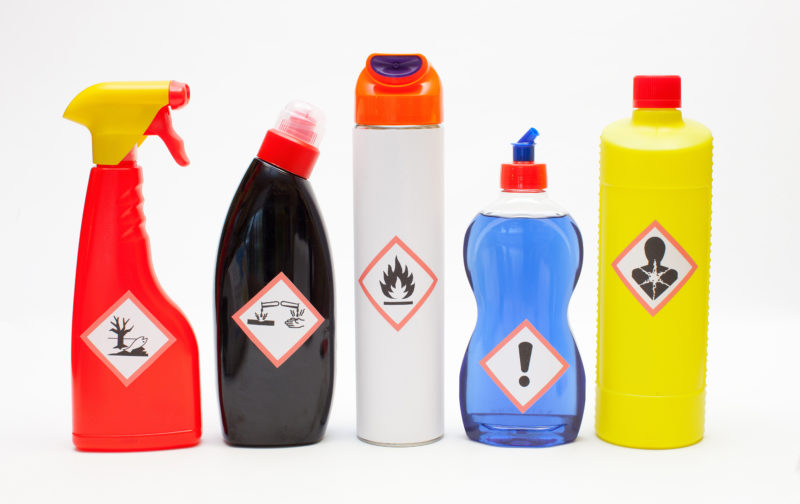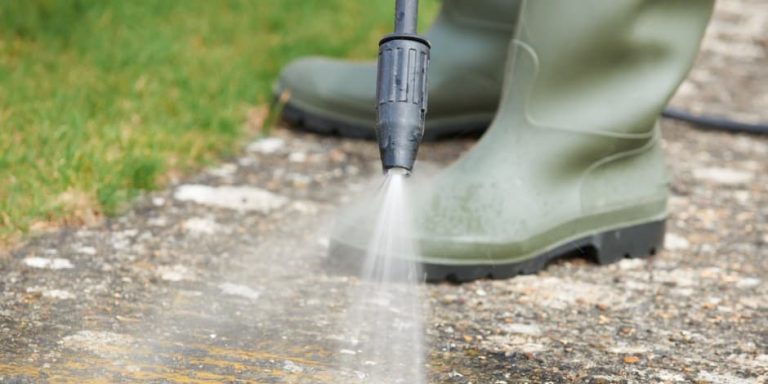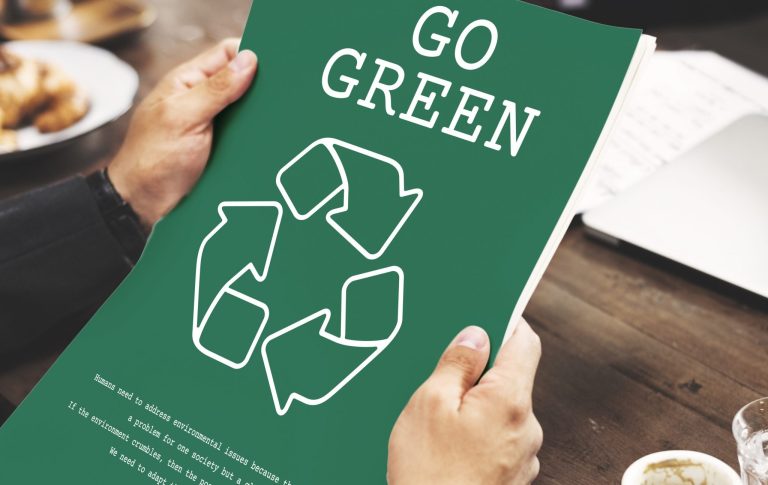
Power washing has earned a reputation for being one of the most efficient ways to clean driveways, decks, siding, and more. But the powerful water jet alone often isn’t enough—especially when tackling mold, mildew, oil, and set-in grime. That’s where chemical cleaners come in.
Unfortunately, many of these cleaning products contain ingredients that are harmful to the environment, especially when they run off into storm drains or seep into soil. In this article, we’ll examine what’s in these chemicals, how they affect ecosystems, and what safer alternatives exist for eco-conscious homeowners and contractors. 🌎
⚗️ What’s Really in Power Washing Chemicals?
Commercial and residential pressure washing detergents vary widely in composition, but many contain harsh synthetic ingredients designed for maximum cleaning power. These include:
- Bleach (sodium hypochlorite) – Strong disinfectant, effective on mold and mildew
- Phosphates – Break down dirt and grease but contribute to nutrient pollution
- Ammonia – Used for cutting through grime and oxidation
- Surfactants (e.g., sodium lauryl sulfate) – Helps lift dirt from surfaces
- Petroleum-based solvents – Break down grease and oil stains
- Fragrance chemicals and dyes – Used to mask odors or improve appearance
While effective, many of these ingredients are non-biodegradable, toxic to aquatic life, and dangerous to plants, pets, and even humans if not handled properly. 🛑
🌊 The Environmental Toll of Chemical Runoff
When you rinse these cleaners from a surface, they rarely stay contained. Instead, the runoff usually ends up:
- Flowing into storm drains
- Seeping into soil and groundwater
- Running into nearby streams, rivers, or lakes
Because storm drains typically bypass water treatment facilities, these chemicals go straight into the environment—untreated. Once in aquatic ecosystems, they can:
- Kill fish, amphibians, and beneficial insects 🐠🐸
- Trigger algal blooms due to nutrient overload (from phosphates)
- Disrupt the food chain by harming plankton and bottom-dwelling organisms
- Accumulate in sediment and affect plant root systems
Even at low concentrations, the long-term buildup of these substances can permanently damage local environments.
🐾 Danger to Pets, Pollinators, and People
Toxic cleaning chemicals don’t just affect fish and frogs—they pose a risk to pets, wildlife, and even children who play on recently washed surfaces.
Common risks include:
- Skin irritation or chemical burns
- Inhalation of toxic fumes (especially from bleach or ammonia)
- Poisoning from licking treated surfaces or puddles
- Disruption of pollinators like bees and butterflies 🐝🦋
In neighborhoods with a lot of pressure washing activity, these risks multiply—especially in warm months when chemicals are more likely to evaporate or spread.
✅ Safer, Eco-Friendly Alternatives
Fortunately, there are plenty of green cleaning products that work just as well for most pressure washing tasks—without harming the environment. Look for labels that say:
- Biodegradable
- Non-toxic
- Phosphate-free
- Pet and plant safe
Some top-rated eco-friendly cleaners include:
- Simple Green Oxy Solve House and Siding Cleaner
- Krud Kutter Exterior Cleaner
- ECOS Pro All-Purpose Cleaner
- H2O Works Power Wash Soap (plant-based)
These products use natural surfactants, plant-based solvents, and enzymes instead of harsh chemicals. They’re not only safer for the environment but also safer for the person using them.
Browse Amazon Here For Biodegradable Pressure Washing Detergents
🧼 Less Is More: Responsible Usage Tips
Even when using safer cleaners, it’s important to limit usage and follow best practices. Here’s how:
- Pre-soak surfaces with plain water to loosen debris naturally.
- Spot-treat only stained areas rather than covering the whole surface.
- Avoid applying cleaners on windy days, when mist can spread.
- Never spray near open drains or allow runoff into gutters.
- Use collection systems or barriers to control flow and contain waste.
For homeowners, simply sweeping and scrubbing before washing can greatly reduce the need for chemical cleaners. Contractors should be especially vigilant about runoff management and compliance with local regulations. 🧠
⚖️ Legal and Regulatory Implications
Many cities and counties now regulate what types of cleaning products can be used outdoors. Fines may be issued if:
- Chemical runoff enters storm drains
- Prohibited substances (e.g., bleach) are used near waterways
- Businesses fail to follow Best Management Practices (BMPs) for chemical disposal
In California, for example, power washing operations must comply with NPDES permit requirements that govern stormwater discharges. These rules aren’t just bureaucratic—they’re meant to protect your local environment from chemical damage. 📜
🌿 The Bigger Picture
The rise of sustainable living has made eco-conscious cleaning more than a trend—it’s a responsibility. Whether you’re washing a patio or a fleet of trucks, the chemicals you use don’t just disappear when the water dries.
Every cleaner you rinse off your property enters a shared ecosystem. If we all commit to reducing toxic runoff and using safer alternatives, we can keep our homes clean without dirtying the planet. 🌱🌍
Browse Amazon Here For Biodegradable Pressure Washing Detergents






